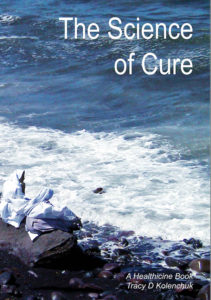 There are no scientific studies of root causes of disease.
There are no scientific studies of root causes of disease.
Pathology studies causes of death and diagnosis of disease. eg. Causes of the end of life. End causes of diseases. Pathology makes no attempt to study “root causes”.
Epidemiology studies statistical causes of disease and patterns of disease in societies, but also makes no attempt to identify “root causes”.
Why are there no studies of root causes? Because there are no “root causes” of diseases. Every cause has a cause. Every cause of a cause has a cause. Every cause of a cause of a cause, has a cause. Every cause has consequences. Every consequence becomes a cause of other consequences.
Root causes are not an important concept in disease study.
What is important? Cure causes.
But there is no field of science or medicine that studies cure causes of disease. It’s a bit easier to understand this, once we understand the concept of a cure cause.
What is a cure cause of a disease? A cure cause is a cause, that when addressed, leads to a cure of the disease. Let’s look at a simple example: scurvy.
All three medical texts: Merck, Lange’s, and Harrison’s agree. Scurvy is caused by a deficiency of Vitamin C. All three medical texts recommend treatment with supplemental Vitamin C (although amounts and duration of treatment vary). Not one medical text uses the word “cure” for scurvy, and not one of the treatments recommended cures scurvy. If the patient goes back to their previous lifestyle, their previous diet after the treatment, the disease will reappear. It was not cured. The cure is to address the cure cause, not the “root cause”.
What is the cure cause of scurvy? Well, it depends. Let’s look at a few cases. But first, we need to understand the concept of cause.
Every illness has a cause. Every cause has a cause. Every cause has consequences. Every consequence is a cause of further consequences. Analysis of cause is fractal and unending. We can always find another cause of a cause. We can always look at the intersection of a cause and its consequences, and find intermediate causes. There are no “root causes”. It’s causes all the way down.
Maude has scurvy. She has scurvy because she is a senior who lives alone and cooks for herself. But she’s stopped cooking. She’s stopped paying much attention to food. She’s living on bread and water mostly. So, she has scurvy. What is the “root cause”? Is it a deficiency of Vitamin C? Providing Vitamin C will not cure. She won’t even remember to take it. What is the cure cause? There are lots of them. If she moves into a senior’s complex, that provides a healthy diet, she will be cured. The cause was living alone. If meals on wheels provide a healthy diet, she will be cured. The problem was not being able to provide healthy food for herself. If she moves in with her son’s family, and participates in cooking and social activities, and consumes a healthy diet, she will be cured. The cause? Familial neglect? There are lots of cure causes. The cure proves the cause.
Bert is an alcoholic. He spends all of his money on booze, and doesn’t eat much. He gets his calories from beer and hard liquor. So he has scurvy. What is the root cause? Is it a deficiency of Vitamin C Providing Vitamin C will not cure. Bert will get drunk and lose the medicines, or forget them. What is the cure cause? If we can cure Bert’s alcoholism, the scurvy might be cured. If we can get Bert into a support situation, where food is provided without judgement – he can stay an alcoholic and we can cure the scurvy. If Bert is given lots of money, he might decide to spend some of it on food, and not all of it on alcohol. There are lots of cures and lots of cure causes. There is no “root cause”.
Mary is a single mother. She has two young daughters – and no income. She is starving herself, deliberately giving all the food she can find to her daughters. She has scurvy. What is the “root cause”. It’s clearly not a deficiency of Vitamin C. What is the cure? To move Mary out of poverty. So the cure cause was poverty.
Bob works on a ship that provides a crappy diet. Bob gets scurvy, as do all the other sailors. What is the “root cause”. Is it the ships cook? Is it the shipping company? The root cause is not important. The cure cause is important. If Bob gets a worse job on a ship that provides a better diet – the scurvy will be cured. If Bob gets fired and is forced to leave the ship, the scurvy can be cured. If Bob takes his own food or Vitamin C tablets, the scurvy can be cured.
What is the cure cause? The opposite of the action that cures. Cure causes produce cures. Root causes? Idle speculation, of some use in understanding the disease – but of little use finding a cure.
What science studies cure causes? There are none.
Cure is not defined, not important in epidemiology dictionaries. Pathology is about failures to cure, not about cure success. There are over 70,000 codes for diseases documented by the World Health Organization’s International Classification of Diseases. These codes are also used for causes of death. There are no codes for cures.
Merck Manual of Diagnosis and Therapy, 11th Edition
Harrison’s Principles of Internal Medicine
Lange’s Current Medical Diagnosis and Treatment
Diagnostic and Statistical Manual of Mental Disorders (DSM–5)
Cure, the word cure, does not even appear in many medical dictionaries, including:
Webster’s New World Medical Dictionary, Third Edition, 2008
The Oxford Concise Medical Dictionary, Ninth Edition, 2015.
The Bantam Medical Dictionary, Sixth Edition, 2009.
Barron’s Dictionary of Medical Terms, Sixth Edition, 2013
Medical Terminology for Dummies, Second Edition
The Oxford Dictionary of Nursing, Edition 6, 2014
Minidictionary for Nurses (Oxford Paperback Reference) 6th Edition
The Lexicon Medicum, Seventh Edition, also known as Hooper’s Medical Dictionary, 1838, the word cure is not defined.
The London Medical Dictionary, published in 1819, uses the word cure several times, but does not provide a definition of cure.
The concept of “root causes” is a distraction from the truth. No scientific or medical practice studies cures.
It’s not hard to study cure. There is no interest. When anyone claims a “root cause” of disease, nobody cares.
To your health, tracy
Author: The Elements of Cure
This post was initially written as a response to the Quora question What is the name of the science that studies the root causes of disease?


